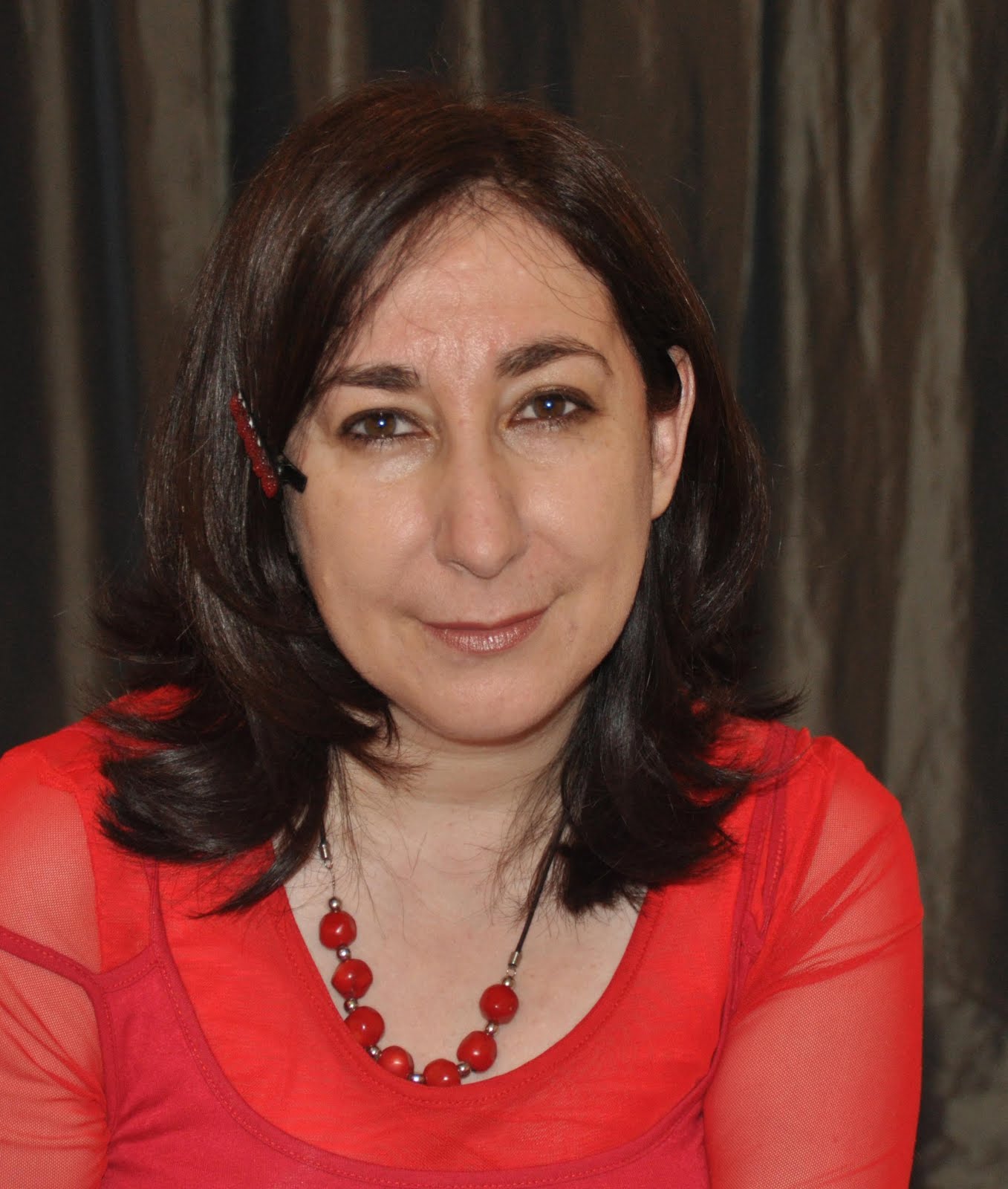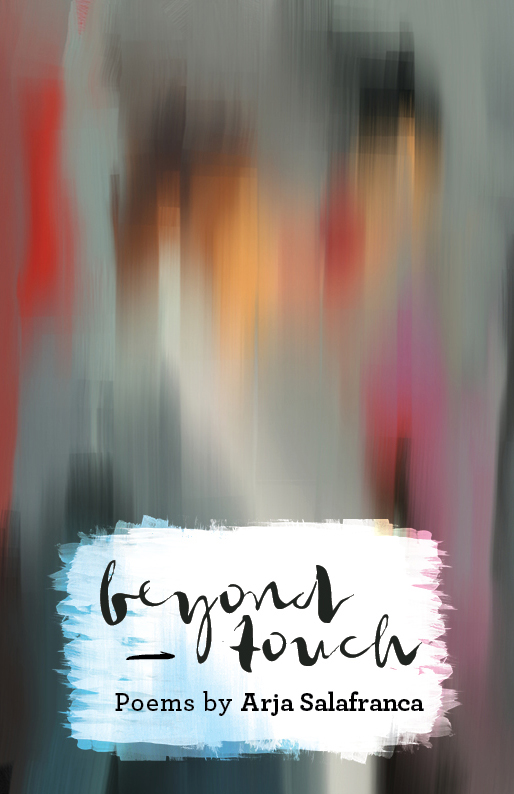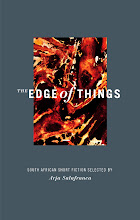Eyes are opened to the life the blind experience at the Dialogue in the Dark exhibition,
writes Arja Salafranca
My name was reduced to three crystalline syllables. I said it into the dark, introducing myself to our blind guide. I stood there, first in line, holding a mobility cane, projecting my voice into the blackness. Usually the pronunciation of my name elicits comment – its pronunciation bears no relation to the way it’s spelled, and it’s a cause of confusion and puzzlement, especially once someone has read it on paper first.
But we were without sight here, my name reduced and, for the first time in my life, simplified. It was a taste of things to come – although I had no way of knowing that as I stood in the darkness.
I was part of a party of five experiencing the Dialogue in the Dark exhibition.
I was fearful at first. I had read about similar Dialogue in the Dark initiatives online – most specifically the experience of dining in darkness, being served by blind waiters. And I had read that Dialogue in the Dark was coming to South Africa and had been looking forward to it.
It was pitch dark in the exhibition, a darkness that at first assaults and feels terrifying, close and claustrophobic. You want to open your eyes wider, hoping to let some light in. The friend I had come with became claustrophobic and said she had to leave. We waited as she was led away.
Briefly put, Dialogue in the Dark is an exhibition in which you’re led into a midnight black space, with blind guides leading you into various places – from a garden-like atmosphere, to a cityscape and finally into the aptly-named Dialogue Cafe. The purpose is to experience – fractionally, and for 45 minutes – what it is like to live in a world without sight, a world where your other senses come to the fore, forced to the surface as you negotiate your way through a dark world without sight.
As my friend was led away, and we waited for our guide to return, I wondered if I, too, was going to succumb to fear. I wasn’t comfortable, and had difficulty breathing, no matter how I tried. I was taking shallow breaths as though I were at a high on a mountain altitude and struggling to breathe.
As though perhaps sensing my anxiety, our guide Hanif Kruger, having returned, paid special attention to me. Standing close, he offered to take my hand, or to let me hold onto his arm. I clutched at this lifeline.
With tiny steps I shuffled forward, unsure where I was going, which way to turn, or how to negotiate this world. The two men in our group were already rushing forward, eager to explore this strange new experience, less fearful, more adventurous. I wished I could be as daring – but I felt as though, in a sense, I’d been reborn, and my way of negotiating new experiences is a slower, more cautious way.
We were led over a small suspension bridge within a garden-like space. The two men had already dashed across it, and I heard the one commenting they had managed it; it had swayed slightly, but they were already exploring the trees and foliage on the other side. The bridge swayed. My fears were confirmed.
In the distance, there were noises of wind and what could have been waves. I was still too anxious to take in the sounds.

Hanif came close again, a voice in the dark. I hadn’t seen him and had no way of judging his age, or his looks, and thus coming to any sort of rash judgments that we are prone to in the sighted world. I had a voice to follow, a hand, a strong arm. “You can grip both rails of the bridge if you have wide arms,” said Hanif. I found the other rail, I gripped both firmly, somehow managing to retain my mobility stick, and made my way, crouched, and slowly, across the bridge. Again I shuffled, again I felt old, as though I had aged and could do little more than hobble.
Then I heard the high-pitched tone of my friend who had left. She had been persuaded to return, and had been advised to keep her eyes shut. She found it much easier. Leading her back into the exhibition was Danielle Dimitrova, director of global development. I had met her briefly outside the exhibition space as we had prepared to enter. All proprieties cast aside by my fear, I heard her voice next to that of my friend, didn’t recognise it and rudely said, “Who are you?”
She politely explained she had met me outside – a deep, French-accented voice. I clung to her voice, to the nearness of her presence. Again, I couldn’t reconcile her voice to the slight, slim figure I had met outside – and it was too confusing to try. It was as though I were meeting her for the first time – and in a sense I was. Without benefit of sight, I found sight makes you judge a person by appearance – and there’s little judgement when you’re in the dark, clinging like a child.
Danielle took myself and my friend in hand, encouraging us to form a chain. We linked up, more than occasionally bumping into each other, digging a finger into a waist, a breast, proprietaries again cast aside.
“What’s this? asked Danielle, encouraging me to feel my way around the surrounding: from a tree, to its papery leaves, to the plastic moulded lid of a dustbin. Sometimes it was near impossible to say what I was feeling, sometimes the realisation came slowly as my other senses kicked in, memory of touch and feel somehow taking over as I couldn’t rely on my eyesight.
There was a sense of triumph as we figured out what we were touching, calling out the names of the objects excitedly, at one point I giggled to myself – this was like charades in the dark. It was apt – we were reduced to childhood in some ways – to a time when the world was new, experiences were novel, and we needed to be led around, guided, have the world explained as we explored.
Danielle led us into a city space next, again, we shuffled forward, cane ahead, encountering angles of the exhibition space, waiting patiently like children to be shown this strange new world. “What’s that?” asked Danielle as we listened to the sounds invading our senses – buses, trains, a busy transport concourse? Again we groped through memories, and again we leaned heavily on yet another sense, that of hearing, placing a heavier burden on hearing than we are used to in our sighted world.
Again, we eventually guessed correctly, calling out correctly as we crossed the noisy world of a modern city. My senses were starting to feel assaulted – noise, unfamiliar noises, the movement of bodies around me, and always the lifeline of Danielle’s strong, clear voice leading us forward, clutching it like a rope, a lifeline.
We were in a market next, feeling fruits and vegetables in a bowl. Sense of smell was the next sense to be put to work – I couldn’t distinguish an apple from the other fruits without putting it to my nose and sniffing the aroma.
I marvelled at the strangeness of touching and smelling in order to work out what was in the bowl.
A pineapple was easy to guess at – its prickly-like leaves and outer shell easy enough. There were clothes hanging by a market stall, different fabrics falling between my fingers, a mannequin with a pregnant belly.
All the while there was Danielle’s strong warm presence leading us through, encouraging us to explore, to feel, to guess. I was struck by how this experience had revealed us all in psychological ways: both my friend and I are anxious types and explored through the veil of our fear.
When another friend went days later she found herself confronting and resolving her own demons, while my mother on her visit raced ahead, true to her daredevil sense of spirit.
We were now growing more confident. The fear had left me; my friend was even starting to make her way in this world of the darkness, had acquired a confidence, as though discovering a sense she hadn’t known before.
She moved quicker now, more sure of her steps, I was no longer shuffling as slowly as I had before, but was nowhere near as confident as she.
Our encounter with the dark ended with drinks and chips in the Dialogue Bar. I moved toward the counter and placed my order with two servers there. More voices in the dark. I gave them a R100 note, they knew exactly what I given them, and knew exactly what change to give me and how much. I took the clutch of notes and coins, I had no idea what I had been handed. I was too busy holding onto my mobility cane, my straw, my can of cold drink and packet of chips.
Noises were louder in the silence, crisp packers ripped through the darkness, opening a straw and inserting it into the can took longer than necessary. Tastes were intensified in the dark, senses now concentrated on flavour, seeking it out, making it work harder again than it ever has to.
As we sat Hanif passed us a “pimply” book – a book of Braille. We passed our fingers along the unfamiliar small dots on the surface of the paper.
I couldn’t imagine having to read through my fingers. Hanif spoke as we ate, telling us that he had been blind from birth, his optical nerves hadn’t been attached to his eyes.
He was married, his wife also blind. We tried to make sense of world without colour as he spoke, “To me a tree is a pole with more poles and leaves at the end of it.” I tried to imagine knowing a tree purely through feel and smell, and failed miserably. I imagine a tree and immediately I see the visual image before me.
“There are only a few things I wish I could see,” he shared, “a sunset, or a baby’s smile or the look of happiness on someone’s face.”
We greeted this with a poignant silence, each lost in contemplation.
And then, a chink of light, a faint glimmering of white, and Hanif led the way out. I was sorry to be leaving the darkness, and yet I breathed a sigh of relief as we were led out, the faint white giving way to the lit corridor and into the light.
Back into the world I knew, but why, paradoxically, was there also this sense of loss?
ABOUT THE EXHIBITION
The Dialogue in the Dark is curated by the South African National Council for the Blind and the Sci-Bono Discovery Centre in Newtown and is now open to the public .Initiated by Andreas Heinecke in 1988, Dialogue in the Dark is a product of Dialogue Social Enterprise (DSE), an organisation whose key mission is to create innovative learning opportunities that improve the quality of human interactions. The underlying principle of the exhibition is drawn from the work of German-Jewish philosopher Martin Buber, “Principles of Dialogue”, which states that “The only way to learn is through encounter”. The Dialogue in the Dark exhibition has travelled worldwide raising awareness about human diversity while empowering people with disabilities. It has been presented in more than 30 countries and over 160 sites throughout Europe, Asia and America. Six and a half million visitors have experienced Dialogue in the Dark worldwide, and over
6 000 blind people have been provided with employment.
For further info: http://dialogueinthedarksa.blogspot.com/ and http://www.dialogue-in-the-dark.com
To follow the exploits of Hanif’s guide dog, Orli, visit Facebook and make friends with Orli Kruger
First published in The Sunday Independent August 21 2011
 The stories in The Thin Line hook the reader from the first one, and reel you in on that thin line. You will be haunted by the carefully drawn characters: by Corinna trapped in her huge teenage body, by Cleo in love with a married man after all these years, and poor skinny Mark, as he sees his lover teeter away from him. Salafranca is an accomplished, award-winning writer, this long-awaited collection is a box of jewels.
The stories in The Thin Line hook the reader from the first one, and reel you in on that thin line. You will be haunted by the carefully drawn characters: by Corinna trapped in her huge teenage body, by Cleo in love with a married man after all these years, and poor skinny Mark, as he sees his lover teeter away from him. Salafranca is an accomplished, award-winning writer, this long-awaited collection is a box of jewels.














.jpg)
